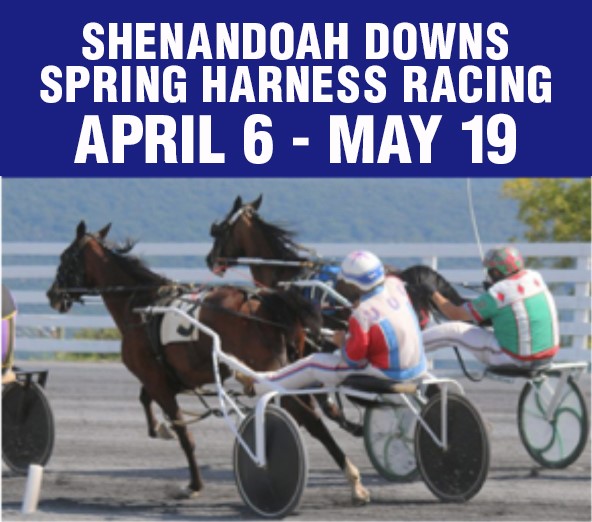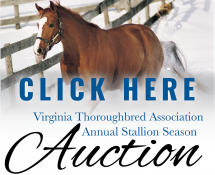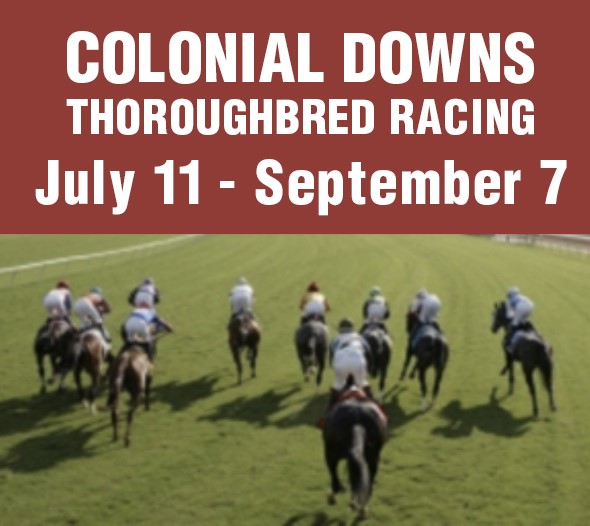The following appeared in The Paulick Report August 5th.
In restoring Thoroughbred racing in Virginia after a six-year hiatus, Colonial Downs, in conjunction with the Virginia Racing Commission, today announced a comprehensive set of elevated safety and horse welfare procedures and protocols for its upcoming race meeting, which opens on August 8.
These broad-based protocols will encompass Pre-Race Examinations, Medication, Test Barn Procedures and Race Time Inspections, among many initiatives to be executed for the meet by the Colonial Downs racing department and the VRC.
“As we approach the opening of our meet, we strongly believe in our foremost responsibility to the ultimate safety and welfare of our equine and human athletes,” said Jill Byrne, Colonial Downs Vice President of Racing Operations. “It is vital to our horsemen and our fans that we create an environment for racing that is conducted under the highest standards.”
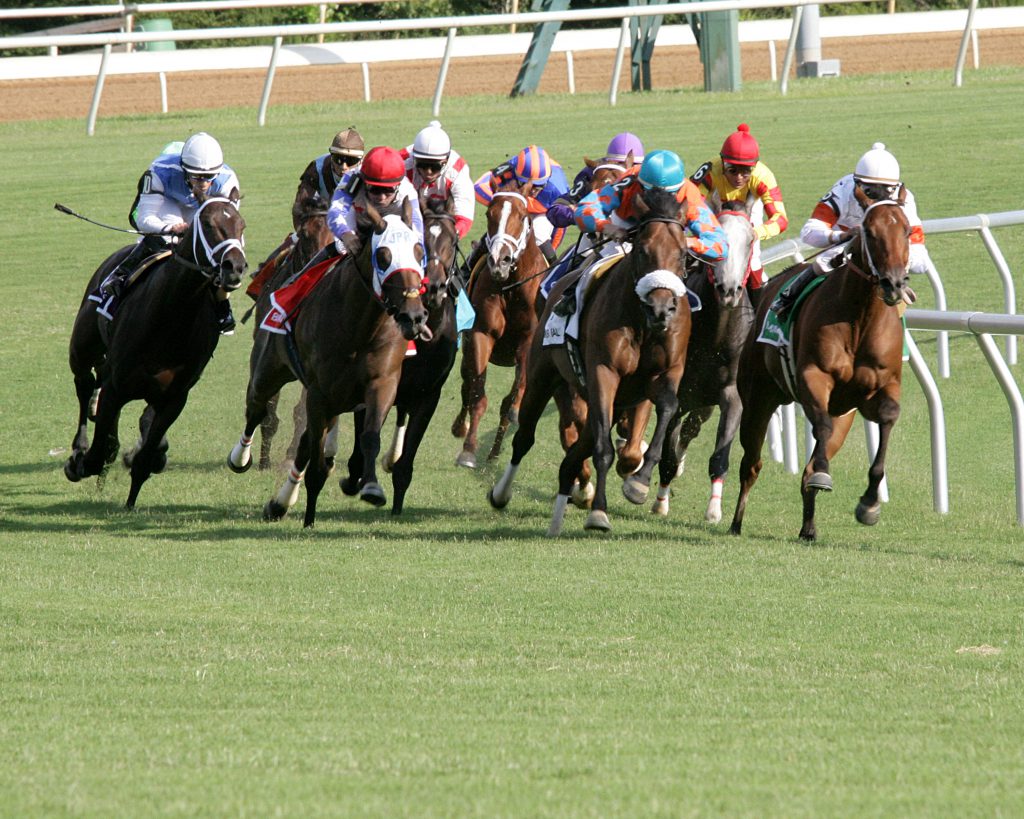
“We are pleased with the support and cooperation from the new owners of Colonial Downs,” said Ada Caruthers, DVM, Virginia Racing Commission. “With their support and cooperation, we are able to help ensure the safety and well-being of our equine athletes, as well as maintain the integrity of racing in Virginia.”
Part of those procedures and protocols are as follows:
Racing Integrity & Pre-Race & Race Day Protocols
A team of five in the Colonial Downs Racing Office staff members, led by Allison De Luca, Racing Secretary, have performed in depth research on all stall applicants and allotted stalls to those who fit the level of criteria for racing or stabling at Colonial Downs. The Racing Office will review all entries prior to acceptance and release of official entries for racing. Questionable entrants will be presented to the Stewards as well as the Virginia Racing Commission (VRC) Veterinarians for additional information as needed prior to denial of entry.
Colonial Downs has instilled a policy of a 72-hour required Health Certificate for entry to the grounds. Security will maintain a detailed manual and digital log of horses shipping in and out.
Race Day Veterinary Protocols
The VRC will provide three Commission Veterinarians for all pre-race and post-race examinations. They will use computer tablets (currently used by vets for the Breeders’ Cup) for immediate, full record database access and record sharing, as well as real time updates through a web-based Track Management system. With real time access, information from an exam is immediately entered on the tablet and all examining veterinarians have the information. Horses can be singled out for further scrutiny in the paddock, at the gate, warming up and at the finish line. The observing veterinarian will determine if a recommendation to the stewards is needed to scratch the horse.
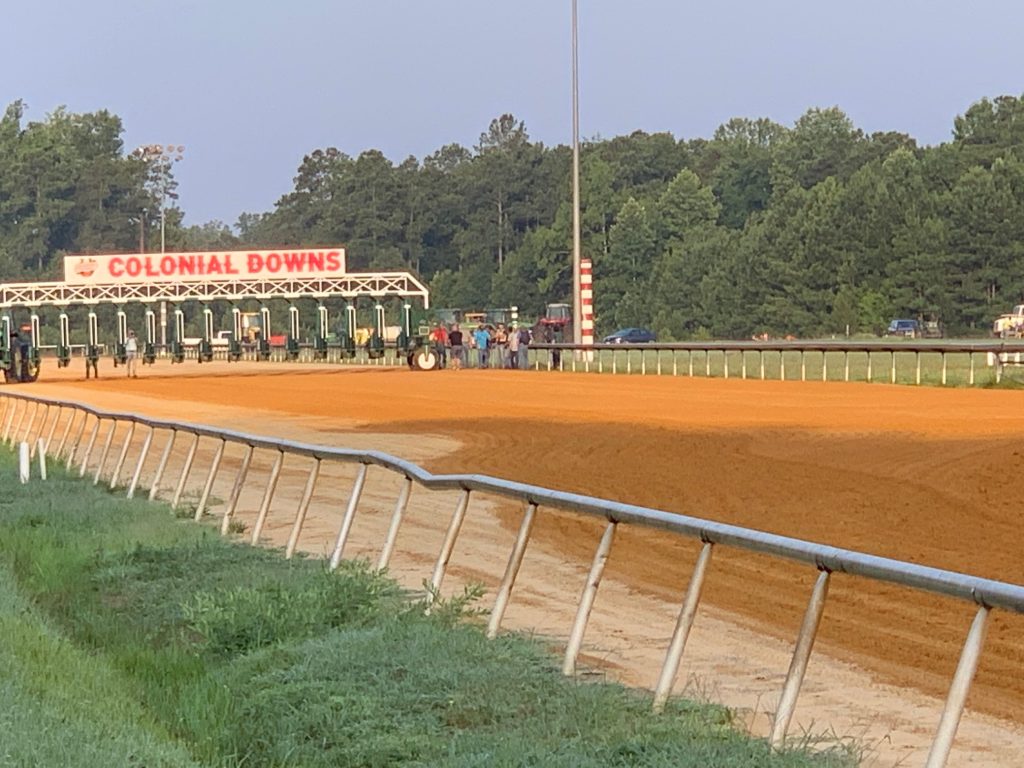
One VRC veterinarian will be riding in the chase vehicle and will be able to provide immediate, medical attention to a horse when needed. The new horse ambulance will be ready to transport any injured horse.
The Stewards will generally select two horses from each race to go to the test barn for drug testing. Blood and urine samples will be collected and sent to an accredited laboratory.
Medication Regulations Updates
· Colonial Downs has banned Bisphosphonates.
· By approval of the VRC, the administration of Furosemide (Lasix) was changed to a lower maximum dose of 6 cc from 10cc
· Colonial Downs has also joined the Mid Atlantic Strategic Plan to Reduce Equine Fatalities and participate in The Jockey Club Injury Database.
· All claimed horses’ vet records will accompany that claim to the new owners.
Track Surfaces
The world-famous Secretariat turf course was put through its traditional burn of the old Bermuda grass. Subsequently, nutrients were applied, followed by soil testing and daily maintenance attain its most lush condition. A new phase 1 irrigation system has been installed to insure consistent water distribution over the massive course.
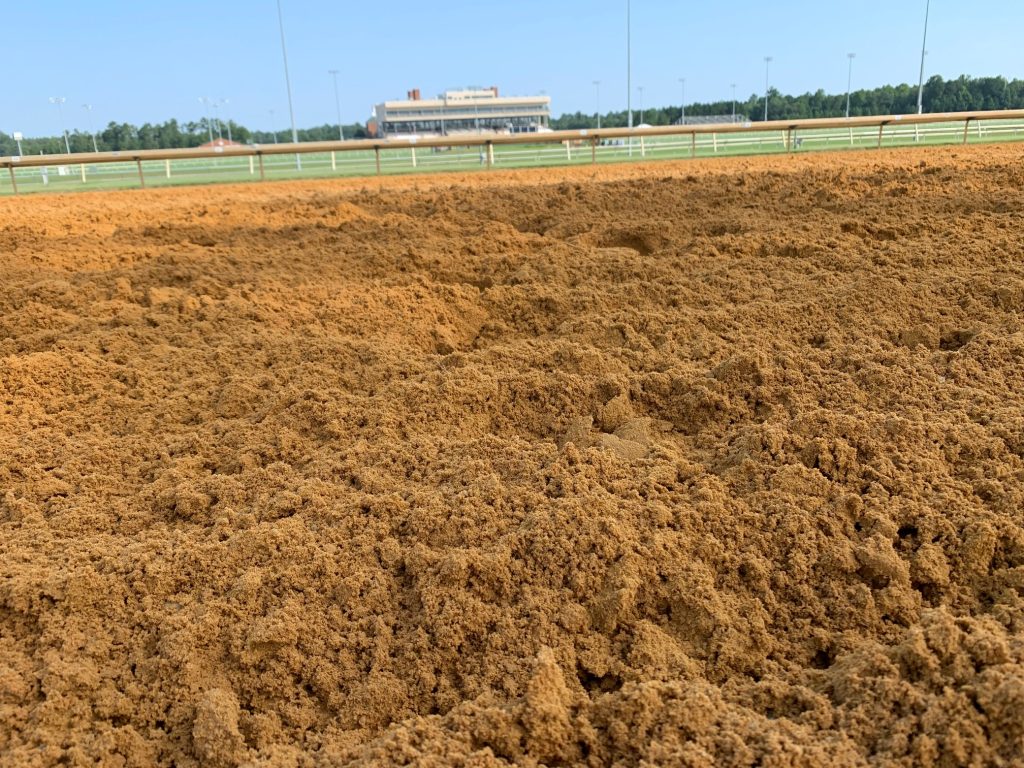
A complete renovation was done of the dirt course to establish proper grading and material content, to give it a 6-inch cushion. Foremost racing surface expert, Dr. Mick Peterson, Executive Director, Racing Surfaces Testing Laboratory and University of Kentucky Director of Ag Equine Programs, performed a complete testing with a ground penetrating radar system, moisture analysis, cushion consistency and gave it a very high grade and positive marks.
Among the additional Safety & Integrity Initiatives, all jockeys will be required to use padded riding crops. Colonial Downs will also utilize an EMS chase vehicle for immediate emergency care.
Stable & Track Area Renovations
In preparation for the re-opening of the racetrack, the Colonial Downs Group made significant investments in renovations and upgrades to the facility. Among those are:
· Barns 1 through 10, tack rooms and wash stalls.
· For the stable area workers, the dormitories and bathhouses were renovated.
· The track’s Receiving Barn also was renovated in preparation for expectation of 100 runners being shipped in for the races.
· The track’s Test Barn was renovated to the specifications of Dr. Caruthers.
· Barn 14 has been prepared as an Isolation Barn in case of an infectious disease outbreak.
“We are proud of our program of safety protocols and procedures which have been developed for the current meeting,” said Allison De Luca, Colonial Downs Director of Racing and Racing Secretary. “We greatly appreciate the contributions from various individuals throughout our industry who have provided their knowledge and expertise throughout the process.”
Colonial Downs will conduct its 15-day meeting from Aug. 8 through September 7 scheduling racing on a Thursday through Saturday format and featuring a minimum of $500,000 per day in purses. First post will be 5:00 p.m. ET.
The highlight of the meeting is the Aug. 31 program of the $250,000 New Kent County Virginia Derby (G3) for 3-year-olds on turf, and the $150,000 Fasig-Tipton Virginia Oaks for 3-year-old fillies, also on the turf.



